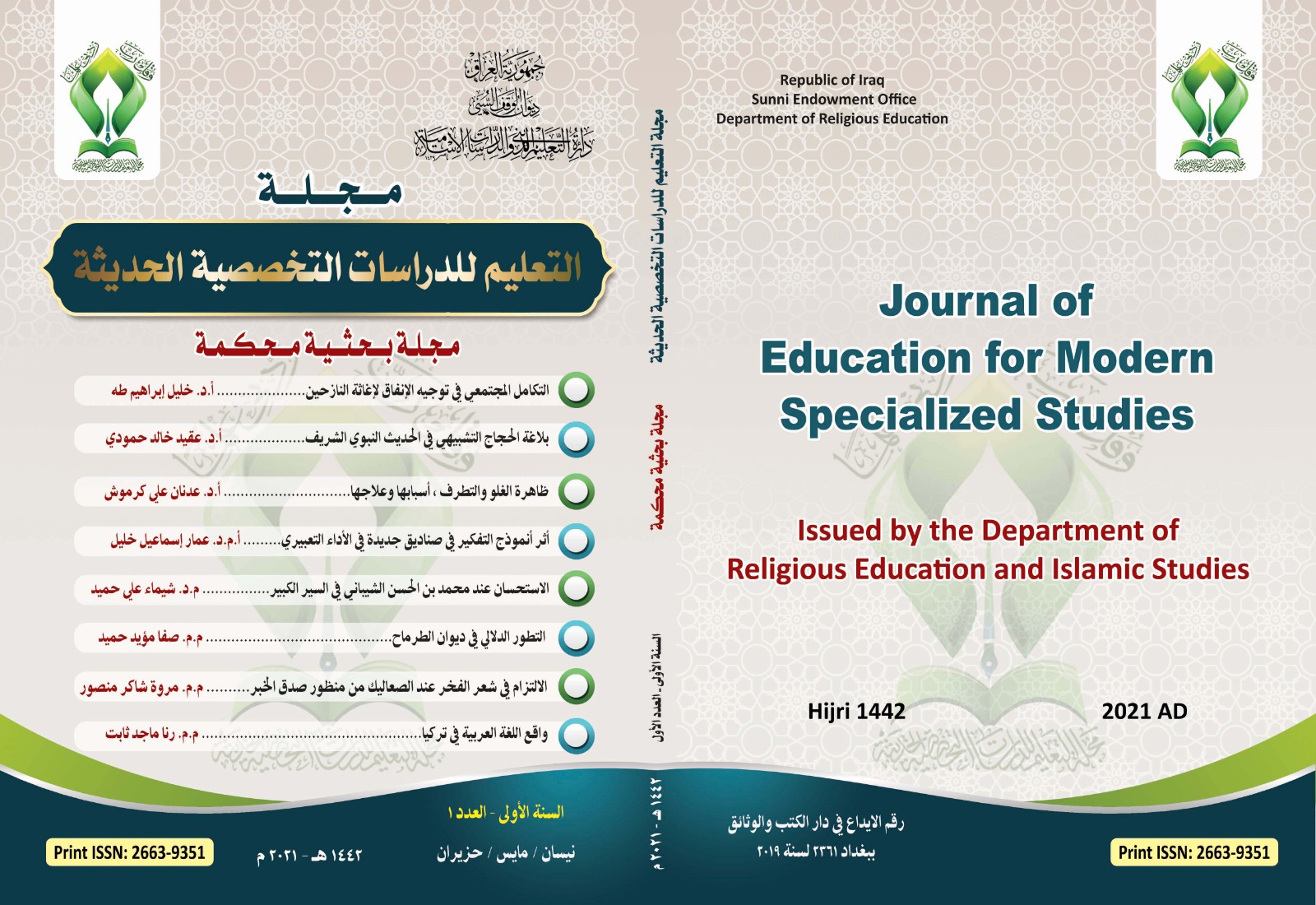Abstract
The nation agreed that He (the Almighty) is a speaker. According to the
Ash’aris: Speech exists in its causal essence and is expressed in psychological
speech. The Mu’tazilites denied this and said: The meaning of His being a
speaker is that He is the creator of speech. The consensus that He (the
Almighty) spoke to Moses for the verses declaring this is rejected by
them, since the basic principle is not metaphor, and they differed in the
description of his hearing of psychological speech. The exotericists said, We
believe in it and do not speak, intending that it is similar. The esotericists
said: God created for Moses understanding in his heart and did not create
for him hearing. The doctrine of the Sunnis is that God created for him
understanding in his heart and hearing in his ears, and the rest of his body
through which he heard the words of God without a sound or a letter
without an intermediary. In keeping with their corrupt doctrine in denying
psychological speech, the Mu'tazilites claimed that God Almighty created
understanding for him in his heart, and a voice in the tree that he heard.
Ash’aris: Speech exists in its causal essence and is expressed in psychological
speech. The Mu’tazilites denied this and said: The meaning of His being a
speaker is that He is the creator of speech. The consensus that He (the
Almighty) spoke to Moses for the verses declaring this is rejected by
them, since the basic principle is not metaphor, and they differed in the
description of his hearing of psychological speech. The exotericists said, We
believe in it and do not speak, intending that it is similar. The esotericists
said: God created for Moses understanding in his heart and did not create
for him hearing. The doctrine of the Sunnis is that God created for him
understanding in his heart and hearing in his ears, and the rest of his body
through which he heard the words of God without a sound or a letter
without an intermediary. In keeping with their corrupt doctrine in denying
psychological speech, the Mu'tazilites claimed that God Almighty created
understanding for him in his heart, and a voice in the tree that he heard.
Keywords
Ash'ari
Attribute
Mu'tazila
speech
Abstract
اتفقت الأمة على أنّه) تعالى( متكلم، فعند الأشعرية: الكلام قائم بذاته العلية، ويعبر عنه بالكلام
النفسي، وأنْكر المعتزلة ذلك وقالوا: معنى كونه متكلماً أنّه خالق للكلام، والإجماع على أنّه )تعالى( كلم
موسى للآيات المصرحة بذلك يرد عليهم إذ الأصل عدم المجاز، واختلفوا في صفة سماعه للكلام النفسي،
فأهل الظاهر، قالوا: نؤمن به ولا نتكلم قصداً منهم إلى أنّه متشابه، وقالت الباطنية: خلق الله لموسى فهماً في
قلبه، ولم يخلق له سمعاً. ومذهب أهل السنة: أنّ الله خلق له فهماً في قلبه وسمعاً في أذنيه، وسائر بدنه سمع
به كلام الله من غير صوت، ولا حرف بغير واسطة. وزعم المعتزلة جرياً على مذهبهم الفاسد في إنكارهم
الكلام النفسي أنّ الله تعالى خلق له فهماً في قلبه، وصوتاً في الشجرة سمعه.
النفسي، وأنْكر المعتزلة ذلك وقالوا: معنى كونه متكلماً أنّه خالق للكلام، والإجماع على أنّه )تعالى( كلم
موسى للآيات المصرحة بذلك يرد عليهم إذ الأصل عدم المجاز، واختلفوا في صفة سماعه للكلام النفسي،
فأهل الظاهر، قالوا: نؤمن به ولا نتكلم قصداً منهم إلى أنّه متشابه، وقالت الباطنية: خلق الله لموسى فهماً في
قلبه، ولم يخلق له سمعاً. ومذهب أهل السنة: أنّ الله خلق له فهماً في قلبه وسمعاً في أذنيه، وسائر بدنه سمع
به كلام الله من غير صوت، ولا حرف بغير واسطة. وزعم المعتزلة جرياً على مذهبهم الفاسد في إنكارهم
الكلام النفسي أنّ الله تعالى خلق له فهماً في قلبه، وصوتاً في الشجرة سمعه.
Keywords
الصفة، الكلام، الاشاعرة، المعتزلة
